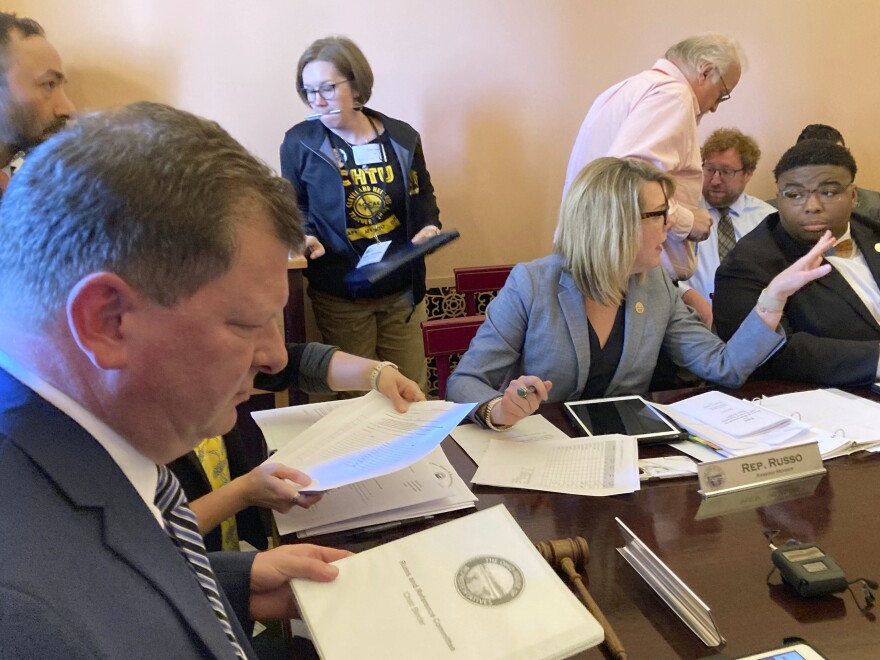COLUMBUS, Ohio — Ohio voters will get the chance to decide whether to make it harder to pass constitutional amendments just ahead of a possible November vote on an amendment that would enshrine abortion rights in the state.
A resolution asking voters in an August election to raise the threshold for future amendments from a simple majority to 60% cleared the politically fractured Ohio House 62-37 on Wednesday. Five majority Republicans joined all Democrats in opposing it. The policy battle has consumed the state for months.
Since the U.S. Supreme Court overturned its landmark Roe v. Wade ruling guaranteeing abortion rights last year, other states' amendments involving the procedure have shown voter support for legal access to abortion is between 50% and 60%, whether in conservative Kansas, Democratic-leaning Michigan or Republican-leaning Kentucky. No vote has exceeded 60%.
AP VoteCast polling last year found 59% of Ohio voters say abortion should generally be legal.
The resolution's Republican backers continued to characterize the effort as a constitutional protection act aimed at keeping deep-pocketed special interests out of Ohio's foundational documents, while Democrats lambasted it as an assault on democracy.
Cries of protest resounded through the Statehouse as Wednesday's debate took place, and Democratic lawmakers produced hand-painted signs from under their seats just after the vote and exited the chamber chanting, "One person, one vote."
The measure's sponsor, Republican state Rep. Brian Stewart, said the protesters didn't bother him.
"You've got 150 people in T-shirts in a state of 12 million people," he said. "That's fine. They can come and put on the circus, but we expect this is going to be a robust election and well-received, and we believe it will pass when Ohioans get their chance to vote."
The labor-backed We Are Ohio coalition launched an immediate opposition campaign. Other opponents include every living ex-governor of the state, both Republican and Democratic former attorneys general and the Ohio Libertarian Party.
Kayla Griffin of All Voting is Local, a voting rights organization that's part of the We Are Ohio coalition, said lawmakers "should not underestimate us when we show up in August."
Jen Miller, executive director of the League of Women Voters of Ohio, said, "We call on every Ohioan to knock on doors, to phone bank, to register voters and to not just let them know there is an August election, but that our ability to determine our own futures as voters is on the line."
Among maneuvers used to get the resolution past its GOP opposition was to remove language Tuesday that would send the question to an August ballot. Opponents of that strategy bristled at the fact that it was only in January that a new election law was signed eliminating most August special elections.
State Rep. Sharon Ray, who offered the amendment pushing the 60% question to Ohio's next scheduled general or special election, said an August election would add "another level of complication" to the already tough job of local election workers.
"I made a promise to our board of elections," the Republican said. "Remember, these are our neighbors and friends that work very hard to provide flawless elections for us — most of them volunteers, they get paid a mere stipend — and, I guess, I appreciate their sacrifice."
The language was reinserted on the floor Wednesday, with minor changes that required it to go back through the Ohio Senate, which approved it easily.
Copyright 2023 NPR. To see more, visit https://www.npr.org.


